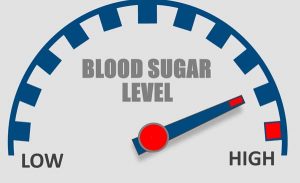
There’s no such thing as the “perfect diabetic”.
Diabetes can be an unpredictable uphill battle. The only control you have over your diabetes is the role you play in managing it. There are many factors out of your control that will affect your glucose levels.
You could eat the same meals every day, exercise the same amount, use the same dosages of medication, and your blood glucose levels would still be different. There isn’t one set action plan when it comes to diabetes. It’s an unreasonable expectation to believe that you can achieve perfect glucose levels all the time. Working with your doctor directly, they will provide you with a goal target blood glucose range.
With proper management you can reach your goals, and lose the stress you have about being the perfect diabetic.
Contents
Factors Out of Your Control
You’ve followed the exact directions from your doctor. You’ve taken your medication as directed, you’ve followed a healthy meal plan, and you have a consistent work-out or exercise routine.
However, your blood glucose levels are always different. You have to understand that there are factors in which you have no control over.
Insulin resistance occurs when your bodies muscles, fat, and liver cells do not properly respond to insulin. Since your body is not properly responding to insulin, it cannot easily absorb the glucose from the bloodstream. Higher levels of insulin are then needed to help the glucose enter the cells. When you experience insulin resistance, you’ll have to adjust your medication to get your blood glucose levels to your target range. This process can be “trial and error” until you are able to properly attain your target blood glucose level.
As frustrating as it is to experience this, try not to become discouraged.
I recommend you read following article:
Illness can cause your blood glucose levels to rise or drop. It just depends on your body’s natural response, and it may also never be the same response. You could see an increase in your glucose levels leading up to your illness, and then a decrease when you start to experience symptoms of your illness. When you are sick your body releases hormones to combat the attack. The extra hormones that are released can trigger insulin resistance.
Food and Drink Affects
Your food and drink intake will always play a factor when it comes to your blood glucose levels. Your body will always react to food differently.
Some foods may cause your glucose levels to increase, while the same food may cause another’s glucose level to decrease. It’s important to keep a proper intake balance of carbohydrates, fats, and proteins. Carbohydrates and proteins all break down in our body into glucose. This doesn’t mean that you should deprive yourself of a sweet treat trying to achieve perfection.
There are three different types of carbohydrates: Starches, Fiber, and Sugars. Carbohydrates break down into glucose, which provides our bodies with energy. Ninety percent of the carbohydrates you consume break down into glucose. This is why you see a bigger impact on your blood glucose levels from carbohydrates then you do from fats or proteins.
Protein also breaks down into glucose which is used for energy. Protein helps new tissue growth, repairs damages done to our body, and helps build muscle. However, Protein doesn’t break down as efficiently as carbohydrates within our bodies. It may take several hours to see the results of protein intake in your blood glucose levels.
Coffee is one of those items that may cause your blood glucose levels to increase or decrease, just dependent on your body’s reaction. This doesn’t mean that if you’re someone who thoroughly enjoys their morning coffee that you have to stop. Just monitor how your body reacts so you can adjust accordingly.
Alcohol can cause your blood glucose levels to rise or drop, again depending on your body’s reaction. Excessive drinking of alcohol can lead to dangerously low blood glucose levels. Consuming alcohol may also affect your judgement, which may cause you to make poor food choices. Beer and wine contain a lot of carbohydrates. It’s recommended that men limit alcoholic beverages to two daily, and women to one daily.
Medication Adjustments
The medications your doctor prescribes to you will likely be adjusted or modified over time. There isn’t one set treatment for diabetes, and each individual has a different medication plan.
Your treatment may be adjusted to combat high blood glucose levels, or if you’ve started to experience side effects from the medication you’ve be prescribed. Your doctor will closely monitor your health, and work with you to create a treatment plan. They will keep track of your A1C, weight, and other lab results.
Your medication may be changed for a variety of reasons. If you aren’t reaching your optimal blood glucose levels, your doctor may want you to try another medication. If you’ve made positive changes to your lifestyle, you may see a decrease in your medication. Children generally see an increase in insulin, due to growth. Other factors may include a new medication on the market, or if your health insurance no longer covers your current medications.
Other prescription medications such as steroids, anti-depressants, birth controls, and nasal decongestants can increase in your blood glucose levels.
Read the following articles to learn more:
If your doctor prescribes you a medication that causes you to have a high glucose level, it’s important that you speak with them to have your medication adjusted. Some over-the-counter medications can cause a flux in your glucose levels. Aspirin may cause a decrease in your blood glucose levels, and some cold medications might cause a rise in your glucose levels.
Fluctuations
Fluctuations in your blood glucose levels can occur for known or unknown reasons. It can become frustrating and overwhelming when you are trying to be the perfect diabetic. It’s important to remember that no one has perfect control over their diabetes, and there are factors that are absolutely out of your control.
Managing your diabetes symptoms is the best that you can do.
Diet
A change in your diet can trigger fluctuations in your glucose levels. If you’ve started to incorporate a healthier diet you may need a medication adjustment. Certain fruits can also cause a spike in glucose levels. The daily fruit consumption recommendation is 2-3 servings per day. If possible choose fruits with lower glycemic indexes like cherries, pears, apples, and oranges. If you want to learn more about the glycemic index and how you can use it to help control your blood sugar levels, click here.
Puberty
Puberty can create fluctuations in your glucose levels. During puberty the growth hormone, estrogen, and testosterone are being released. These hormones can trigger insulin resistance. Many women see an increase in their blood glucose levels a few days before their menstrual cycle.
Physical or Emotional Stress
Physical or Emotional stress can trigger hyperglycemia (high blood sugar). Your body’s response to physical or emotional stress, is to release the cortisol hormone. When cortisol is released its preparing your body for “fight or flight”, and floods your system with glucose.
Dawn Phenomenon
The Dawn Phenomenon, also known as the Somogyi Effect, is characterized by having high blood glucose levels in the morning. During the hours of 2am-8am, our body produces a surge of hormones that trigger insulin resistance. In turn the liver dumps excess amounts of glucose into your body. This natural process provides you with the necessary energy to get out of bed each day. The dawn phenomenon can be managed by controlling the consumption of carbohydrates at night, and by adjusting your insulin or medication nightly.
Other Factors That Can Create Fluctuations:
- Hot Weather
- Dehydration
- Menopause
- Insufficient Sleep
Regaining Control of Your Diabetes
Slipping off your diet regimen and regaining control can feel like a battle itself.
Just because you’ve been slipping doesn’t make you a bad diabetic. There are simple ways that you can take action to get control of managing your diabetes again, and get back on the right track
1. Stop the Slide
The first step to regaining control is to stop the sliding of your diet. Maybe you felt burnt out from the diabetes rollercoaster, and not achieving perfection after all your hard work. Everyone has slipped up at some point, but you can’t allow yourself to fall off completely. Once you’ve gained back your determination, it will be simple to reach your goals.
2. Make a Plan
Make a plan with an attainable blood glucose target goal. If your goal is realistically unattainable, you could end up feeling discouraged again. Creating a plan will allow you to stay accountable for your actions. Having a backup plan can also help you get back on track fast after a slip up.
Your plan might include:
- Meal Planning
- Eating Schedule
- Blood Glucose Testing Schedule
- Regularly Scheduled Doctor's Visits
3. Don’t Skip Meals
It’s important to pay close attention to portion control. Even healthy foods must be eaten in moderation. You’ll want to review the nutrition facts, and possibly adjust your medications accordingly. When it comes to portion control, you don’t want to just go by the size of your plate. Knowing the exact amounts, you’re consuming will help with the management of your blood glucose levels. Using measuring cups or portion control dishware, can help you get your portion sizes under control.
4. Portion Control
It’s important to pay close attention to portion control. Even healthy foods must be eaten in moderation. You’ll want to review the nutrition facts, and possibly adjust your medications accordingly. When it comes to portion control, you don’t want to just go by the size of your plate. Knowing the exact amounts, you’re consuming will help with the management of your blood glucose levels. Using measuring cups or portion control dishware, can help you get your portion sizes under control.
Other articles you might like:
How to stop trying to achieve perfection
Perfect control of blood glucose levels is a myth. You can be perfect at managing your diabetes, but you’ll never experience the same patterns or effects. Since many factors contribute to our overall blood glucose levels, perfect control is unattainable. Discouragement may result in you giving up completely on the management of your diabetes. You may even become depressed because you can’t reach this perfect control. Stress, depression, and anxiety play their roles when it comes to your blood glucose levels fluctuating.
You can work directly with your doctor about any concerns you have regarding your blood glucose levels. Together you can create a plan, and create an attainable blood glucose level target. Remember, you are not defined by your blood glucose levels.
TheDiabetesCouncil Article | Reviewed by Dr. Sergii Vasyliuk MD on September 14, 2018
References:
- http://www.diabetes.org/living-with-diabetes/complications/mental-health/stress.html
- https://www.niddk.nih.gov/health-information/diabetes/overview/what-is-diabetes/prediabetes-insulin-resistance
- http://www.health.com/health/condition-article/0,,20188651,00.html
- http://www.diabetes.org/food-and-fitness/food/what-can-i-eat/understanding-carbohydrates/types-of-carbohydrates.html
- http://www.webmd.com/diabetes/guide/drinking-alcohol
- http://www.todaysdietitian.com/newarchives/111609p38.shtml
- http://www.everydayhealth.com/hs/type-2-diabetes-live-better-guide/regain-control-after-slip/
- http://insulinnation.com/living/the-myth-of-perfect-bg-control/
- http://www.webmd.com/diabetes/features/overcoming-diabetes-diet-mistakes#2















